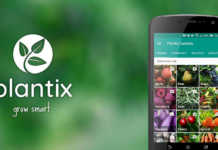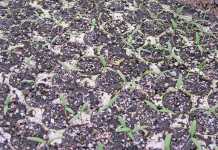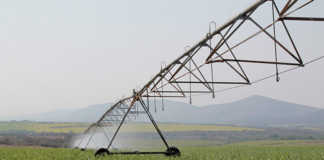In the film, Matt Damon stars as an astronaut who is mistakenly presumed dead after a storm on Mars, and left behind by his crew.
He manages to survive on the Red Planet by farming some potatoes in a greenhouse of sorts until he gets rescued.
Would it actually be possible to farm on Mars? I was surprised to find that this idea is not too far-fetched as it may seem. In fact, farming on Mars seems to have been tried and tested on Earth to a certain extent.
According to Nasa, the soil on Mars has the essential nutrients plants would need to survive. To date, scientists have detected macronutrients like oxygen, carbon, hydrogen, nitrogen, potassium, phosphorus, calcium, magnesium and sulphur in Martian soil.
They’ve also detected micronutrients like iron, manganese, zinc, copper, molybdenum, boron and chlorine.
That said, Modern Farmer reports that Martian soil also contains heavy metals like cadmium and lead, which can be absorbed by plants and can make their crops toxic.
Scientists at the University of Wageningen in the Netherlands have created Mars-like soil to see if astronauts will one day be able to grow food on the planet. They grew radishes, peas, rye and tomatoes and found that none of these crops had dangerous levels of toxicity in them. They even prepared a meal out of it (more about this experiment here).
But before we get too excited about the soil, there are further obstacles to consider before we’ll be able to start farming on Mars. Modern Farmer explains Mars’ gravity could also have an impact on the way vegetables absorb and interact with chemicals and nutrients in the soil.
Not that scientists aren’t already experimenting with the role of gravity in farming. In 2015, a group of astronauts on the International Space Station became the first people to eat food grown in space – they had some red romaine lettuce.
About a month ago, SpaceX founder and CEO Elon Musk revealed plans to colonise Mars with a revolutionary interplanetary transport system that will enable astronauts to travel to and from the Red Planet. But this is not all Musk has up his sleeve – he also reckons he has a solution to growing food on Mars by compressing the atmosphere.
Looking at all the money, time and effort scientists and innovators are putting into this matter, I cannot help but wonder how it compares to the resources spent on finding solutions for drought-ridden areas on earth, but that’s a discussion for another day.
Hopefully there’s a fair amount of method in the madness that will lead to the successful use of some of the Mars-based farming technology right here, on Earth.
Leopold Malan has more than 20 years’ experience in the IT sector, the majority of those years spent consulting and working within the financial services space. He currently heads up integrated processing, systems and IT division at BrightRock, provider of needs-matched life insurance.










